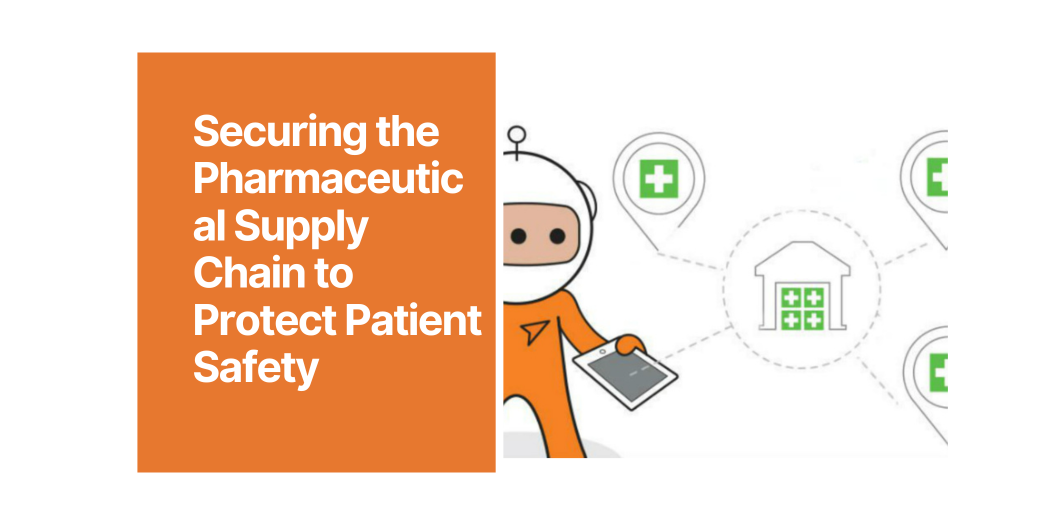Securing the Pharmaceutical Supply Chain to Protect Patient Safety
Caroline Macleod
October 6,2017


At the beginning of this year, the BBC reported that fake Valium was ‘cheaper than chips’ in Scotland, with counterfeit tablets linked to the deaths of several people in the preceding months.
The news adds to other disturbing headlines over the past decade. Vials of the breast cancer drug Herceptin stolen and potentially tampered with before being reintroduced to the supply chain in Italy, fake batches of the statin Lipitor discovered in the UK, and ongoing reports of fake Viagra.
Counterfeit medicines are big business – the World Customs Organisation estimates they could generate £1 billion during 2017.
And of course they are potentially deadly, with the European Commission reporting the issue is responsible for an annual death toll of around 100,000 people.
There is clearly an ethical imperative to protect consumers.
In Europe, the EU Falsified Medicines Directive (FMD) aims to secure the supply chain. Regardless of the outcome of Brexit negotiations, the UK will fully adopt the FMD, although it may be allowed to adapt it to suit the unique needs of the NHS.
To safeguard patients, pharmaceutical companies need to reassure the supply network that the drugs they are providing are genuine (and protect their brand against malpractice in the process). This requires a collaborative supply chain network, one in which there are visible and transparent links between the manufacturer, wholesaler, retailer and patient.
In practice this calls for track and trace capabilities. Tracking provides real-time information about where a product is right now; tracing gives a historical view, showing its path through the supply chain. The combination verifies where each unit has been since it was produced, thereby providing a certifiable audit trail.
During manufacture the FMD requires serialisation and bar codes to be included on the smallest sealable units of drugs so that their integrity can be verified. Information included in the labelling during this process will be provided to a central European hub as a further safeguard to validate every item in the pharmaceutical supply chain.
As well as preventing counterfeit drugs entering the system, in the event of a product recall, this level of data means the location of each packet is known, making it easier to trace and return all items. This saves time for people working in the field, standardises recall documentation creation and improves adherence to procedures outlined in compliance practices.
SAP’s ATTP is just that; a sophisticated track and trace supply chain tool that can identify where any pack of medicine is in the system at any one time, as well as the exact path that is has taken to get there and what has happened to it on the way. In other words, it enables full transparency from manufacture, through the wholesaler and dispenser, until ultimately it is delivered into the patient’s hands.
ATTP enables the increasingly vast amount of data to be stored, managed and shared throughout the supply chain network enabling pharmaceutical companies to meet international legislation and the country-specific reporting requirements.
However essential new regulation, it is often regarded as onerous as it usually requires additional technology resource and investment, such as labelling, data capture and reporting in the case of FMD. Combating this mindset requires an organisation to scope out how the new processes can become an integral part of what it does already and where the changes required can unlock business opportunities.
As well as fighting the counterfeit drugs trade, big data is invaluable to the supply chain as it provides insight and knowledge that can enhance business performance by creating efficiencies that may have not have previously been visible.
Using master data, ‘one version of the truth’, reassures manufacturers that the product being prescribed has come from legitimate, secure sources. It also facilitates accurate collaboration and reduces the time required for reporting and completing compliance documentation.
Rocket Consulting has over a decade of experience of implementing supply chain visibility transformation projects. As well as helping organisations to meet compliance requirements, we work with our customers to streamline data, enhance internal business practices and unlock supply chain benefits to open the doors to financially beneficial collaboration.
Read about our work in the SAP Healthcare sector or get in touch for more information.
• Preventing counterfeiting in the pharmaceutical industry is a key issue.
• Supply chains need to be transparent and collaborative to prove that drugs are genuine.
• SAP Advanced Track and Trace for Pharmaceuticals enables all parties in the pharma supply chain to be compliant.
• The big data generated as part of the track and trace process can be turned into additional business insight.